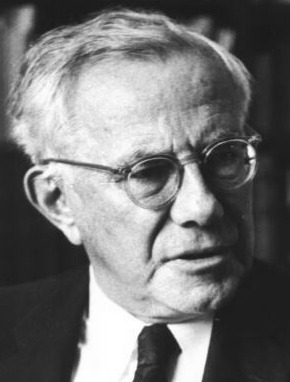Faith consists in being vitally concerned with that ultimate reality to which I give the symbolical name of God. Whoever reflects earnestly on the meaning of life is on the verge of an act of faith.

"Paul Johannes Tillich" was a German American Christian existentialism/Christian existentialist philosopher and Theology/theologian who is widely regarded as one of the most influential theologians of the twentieth century.
Among the general public, he is best known for his works The Courage to Be (1952) and Dynamics of Faith (1957), which introduced issues of theology and modern culture to a general readership. Theologically, he is best known for his major three-volume work Systematic Theology (1951–63) in which he developed his "method of correlation", an approach of exploring the symbols of Christian revelation as answers to the problems of human existence raised by contemporary Existentialism/existential philosophical analysis.
If you enjoy these quotes, be sure to check out other famous theologians! More Paul Tillich on Wikipedia.The courage to be is the courage to accept oneself as accepted in spite of being unacceptable.
I hope for the day when everyone can speak again of God without embarrassment.
Decision is a risk rooted in the courage of being free.
The awareness of the ambiguity of one's highest achievements (as well as one's deepest failures) is a definite symptom of maturity.
Being religious means asking passionately the question of the meaning of our existence and being willing to receive answers, even if the answers hurt.
The courage to be is the courage to accept oneself, in spite of being unacceptable.
He who risks and fails can be forgiven. He who never risks and never fails is a failure in his whole being.
Language... has created the word "loneliness" to express the pain of being alone. And it has created the word "solitude" to express the glory of being alone.
Doubt is not the opposite of faith; it is one element of faith.
The first duty of love is to listen.
The question our century puts before us is: is it possible to regain the lost dimension, the encounter with the Holy, the dimension which cuts through the world of subjectivity and objectivity and goes down to that which is not world but is the Mystery of the Ground of Being.
Man is asked to make of himself what he is supposed to become to fulfill his destiny.
Cynically speaking, one could say that it is true to life to be cynical about it.
Neurosis is the way of avoiding non-being by avoiding being.
Copyright © 2024 Electric Goat Media. All Rights Reserved.